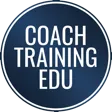Hope Theory as a Unified Theory of Coaching
Psychologists since the 20th century have analyzed how thought, emotion, and hope are related. Perhaps the most prominent voice in characterizing hope is American psychologist C.R. Snyder, who developed what we now call “Hope Theory.”
Snyder’s Hope Theory
Though hope is often culturally considered a feeling, Snyder proposed that hope is more of a “positive motivational state” resulting from a cognitive process. He theorizes that if people can think in a way that generates many plausible and actionable pathways toward achieving their goals, they can be hopeful.
There are three main components in Snyder’s Hope Theory:
- Goals: defined as “the object of a person’s ambition or effort; an aim or desired result.” Goals are transformative in anchoring and directing hope.
- Pathways: indicates that a person can generate plausible routes toward achieving their goals. This also includes having a plan for managing and overcoming any obstacles that show up on these pathways. Having multiple pathways can make a goal seem more attainable.
- Agency: determines whether a person thinks they can use their pathways to achieve their goals. In short, agency means “you can do it.” Building the motivation necessary to work toward your goals can be difficult or impossible without a sense of self-belief and trust in your pathways.
Snyder’s Hope Theory suggests that thought processes are the crux of hope. People with high hope often have multiple pathways toward their goals and the agency necessary to build motivation, while those with low hope typically do not.
Thought versus Emotion in Hope
In Hope Theory, it’s crucial to acknowledge that hope is not solely an emotional concept but also involves cognitive processes. Thought and emotion are interconnected and frequently influence each other within this framework.
In Snyder’s hope model, cognition triggers emotion. Those who can devise realistic pathways to achieve their goals tend to experience optimism and energy, while those unable to generate viable strategies may feel pessimistic or frustrated. Emotions like optimism and energy can enhance creativity and stimulate bold ideas, while feelings of frustration or despair can hinder thought processes, making it difficult to generate new ideas.
Though Snyder suggests that hope begins as a cognitive process, his theory does not refute the significance of emotions in hope. Rather, he acknowledges that emotions are an important part of being able to problem-solve and build motivation.
Why Does Understanding Hope Matter?
Many people recognize the significant benefits of hopefulness; positive emotions and increased motivation can make goals more attainable. However, hope has also been linked to greater levels of psychological well-being that can extend well beyond immediate situations.
Research indicates that hopefulness correlates with increased life satisfaction, providing individuals with a sense of purpose and autonomy. Additionally, hope has been found to act as a protective factor against stress in challenging situations. Studies show that hope can mitigate the psychological impact of bullying on students and is linked to fewer PTSD symptoms in victims of events like Hurricane Katrina.
These long-term benefits of hope exceed the instant reward of positive emotions and goal achievement. Understanding what hope is and how it works can help individuals alter their thought processes to increase their immediate motivation while also building the tools they need to grow their overall contentment and gratification in life.
Hope Theory as a Unified Theory of Coaching
The synergy between agency and pathway in motivation and coaching is where the magic happens. Coaching, adept at enhancing decision-making, guides clients in exploring and refining their ideas, expectations, perspectives, skills, limiting beliefs, and mindsets. Through mindful crafting of action steps and accountability, clients, under the guidance of a skilled coach, develop empowered assumptions about agency, gaining clarity on options and insights for potential pathways toward their goals.
In the last decade, we have embraced a Learn-Be-Do model for categorizing questions, providing coaches-in-training with a helpful framework aligned with the principles of Hope Theory. The integration of these frameworks enhances their depth and effectiveness.
Learn-Be-Do is the coaching model we use to remind coaches how to balance learning, being, and doing questions.
Learning
Learning points primarily to the insights clients have about what they are capable of achieving and the strategies and action steps required to achieve a goal. When applied to Hope Theory, Learning lines up with agency and pathways.
Potential Learning Questions include:
- What are you learning about yourself (in this moment or current situation)?
- What new skill is this challenge requiring you to develop?
Being
Being refers to the characteristics your client already has or wants to develop. Being also includes the energy a client brings to a project, assumptions about their abilities, and assumptions about what new achievements mean to their identity. When meshed with Hope Theory, Being lines up with agency, goals, and obstacles.
Potential Being Questions Include:
- What would this accomplishment mean to how you think of yourself and your character traits?
- What strengths do you need to leverage to achieve this goal?
Doing
Doing refers to the action steps taken toward the goal and the systems a client puts in place to work toward it. Usually, toward the end of a coaching session, a client will design an action step to implement before the next coaching session. The coach and the client then co-design how best to help the client stay accountable and incorporate the insights gained from the coaching session into their implementation of the action step(s). When applied to Hope Theory, Doing lines up with pathways, goals, and obstacles.
Potential Doing Questions Include:
- Based on everything we covered in our session, what are a few action steps that come to mind that you want to take in the next two weeks?
- When do you want to get started?
Want to learn more about Hope Theory and other popular coaching topics? Read the full blog post here.
